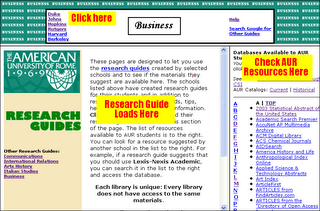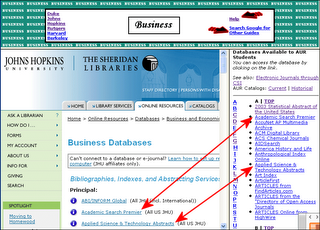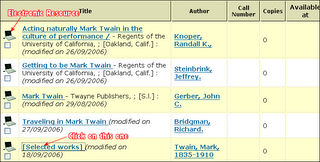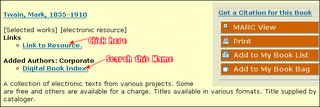Every library has guides to help their students do their research. These can be anything from highly in-depth guides to more general ones. Now that the internet is easily available, it is possible to simply link to guides on the web created by other libraries. Very simple.
The problem is that every library does not have access to the same materials. This is especially true today of the electronic databases, which contain thousands of journals. If two libraries subscribe to two different electronic databases, often they have access to completely different journals. This is why AUR's research guides are a little different. These research guides help you to find materials suggested by other libraries and then discover if those materials are available here.

When you click on a research guide, you will see a page with three frames. The
top frame gives access to the different guides at selected universities. When you select one, e.g. Johns Hopkins, it will load into the
lower left frame. From here, you can read their recommendations, tips, etc. and if they suggest a database, you can compare it with our list, which is in the
lower-right hand side. From here, you can go directly into the database.

Here is an example of how it works. Johns Hopkins has suggested
ABI/Inform,
Academic Search Premier, and
Applied Science & Technology Abstracts. You can check with our resources and discover that we have the last two, but not ABI/Inform.
If you want individual journals, you can search
Electronic Journals through CSI, and there are links to our catalogs.
Finally, clicking on
Help in the top frame reloads the first page back into the lower left frame, and you can also click on
Search Google for Other Guides, which will do an automatic search for library guides on the topic you have selected.
The guides are always available when you click on
Help in the Current catalog.
Click here to work with them now.
 This semester is going to be one of changes. First, we have a beautiful, new library very close to the main campus. There are gorgeous grounds, and lots of space for more books. We have ideas for how to use this space to the best benefit of the students, but please, give us some ideas!
This semester is going to be one of changes. First, we have a beautiful, new library very close to the main campus. There are gorgeous grounds, and lots of space for more books. We have ideas for how to use this space to the best benefit of the students, but please, give us some ideas!






